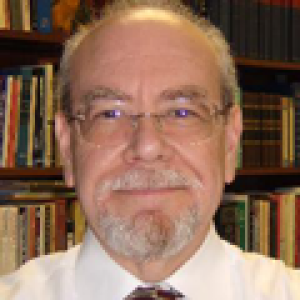Resources

One of the most critical skills theological school deans need, arguably now more than ever before, is that of problem-solving. The challenges facing theological schools continue to become more technologically complex, socially entangled, costly, and multi-faceted. It is evident that most deans are not just dealing with programmatic, administrative, and technological problems, they are dealing with wicked problems. The experience can feel like trying to unravel an endless tangled cord. Horst Rittel, one of the first to research wicked problems, references ten characteristics that describe this sort of complicated challenge: Wicked problems have no definitive formulation. Therefore, it becomes difficult for a dean to define the problem that needs to be addressed. This is a significant challenge given the tendency for people to want to know the one answer and simplest solution to a complex problem. With complex problems, it's never about just one thing. Wicked problems have no stopping rule or criteria upon which to determine "solving." Unlike challenges with clearly defined outcomes and measures of completion, wicked problems are persistent and tend to be moving targets. The answer to "When will we ever solve this problem?" is "Never." Solutions to wicked problems are not true or false; they can only be good or bad. When deans tackle wicked problems the best approach is to choose the best strategy at the time. Arguing about what "should" or "should not" be is pointless. There is no complete list of applicable "moves" for a solution to a wicked problem. Wicked problems require deans to be imaginative, fleet, flexible, and innovative. There is always more than one explanation for a wicked problem, with the appropriateness of the explanation depending on the individual perspective of the perceiver. Hence, deans will constantly deal with the impasse of multiple interpretations. The President will see it one way, the Faculty another, Trustees in their own way, donors and students differently altogether. Where one sits in the system determines one's perspective. It should come as no surprise, then, that no one will see the problem in the same way the dean does. This requires a multi-disciplinary approach to most wicked problems, as no singular perspective suffices. Every wicked problem is a symptom of another problem. Like a knotted bunch of cords, pulling on one end of the problem merely creates tension and tightens the knot on the other end. Deans need to be systems thinkers, understanding the interconnected complexity of the enterprise. No solution of a wicked problem has a definitive, scientific test. When proposing strategies for addressing complex problems deans often face the call to give evidence or proof that the action will be successful. That's just not possible with wicked problems. They require the courage to risk and the ability to adapt along the way. Every wicked problem is unique. The problems facing theological schools are endemic to all schools merely by virtue that they are systems of a type. But it remains true that each dean will have to solve their own problems in their own context. Finally, to paraphrase Rittel, deans attempting to solve a wicked problem must be fully responsible for their actions. That's the burden of leadership. Few, if any, in the organization will take responsibility for tackling wicked problems. That comes with the job of being the dean. While not all problems a dean faces are wicked, those that are will be the most demanding. Even difficult problems can have a solution, and most deans can get adept at tackling them. But wicked problems will be the most challenging to educational leaders due to the indeterminate scope and scale required to address them. Wicked problems can't be fixed; they'll be the bane of every successive dean and President in office. Questions: What are the wicked problems you face in your school? Who are you consulting with on addressing the wicked problems? Are you aware of your biases which may hinder you from seeing alternative and imaginative approaches? Are you alert to unintended consequences as you apply strategies to wicked problems? In what ways are you defining and interpreting the wicked problems to the various audiences in your school?

I find a lot of natural connection between the functioning of effective theological school deans and August Turak's list of "11 Leadership Secrets You've Never Heard About" (http://goo.gl/1wXQm4). Credit given for a catchy title, but these are more proven common-sense...

Two years into my deanship a friend asked how the job was going: "Is it between '10. The best job ever;' or, '6. I’d rather shoot my eye out with a nail gun;' and '1. I’m recommending my worst enemy...

One of the most important functions deans provide for their schools is helping to shape the culture of the school. Changing a culture is also one of the most difficult things to do. Steve Denning, author of The Leader's Guide...

Israel Galindo Baptist Theological Seminary at Richmond Deans in theological schools tend to come from the Faculty, for a variety of reasons. Sometimes it's a question of who is most willing to serve (or, who missed the meeting when the...

Israel Galindo Baptist Theological Seminary at Richmond The relationship of the dean with faculty does not have to be adversarial, but it occasionally can be. Edwin Friedman wrote, “Living with crisis is a major part of leaders’ lives. The crises...

Israel Galindo Baptist Theological Seminary at Richmond I’ve been observing several leaders in the process of making decisions. Some pertain to leaders making organizational or institutional decisions (dealing with employees, closing a program, dealing with a crisis). In only a...

Israel Galindo Baptist Theological Seminary at Richmond I agree with Stephen Graham’s assertion that “Right now, theological schools need leaders, not just managers.”(1). He wrote, “Theological schools need leaders who are willing to name the changes that have taken place,...